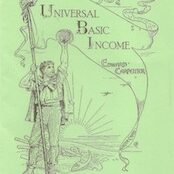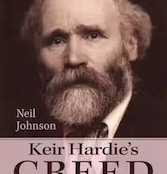America is still gripped by patriotism in the wake of the attacks last September on New York and Washington. But behind the bunting, there are fiery arguments on the US left and right about the uses and abuses of American power. GARY KENT reports.
Debate on the US left is bitter after 9/11. On the one hand, there are traditional anti-imperialists and pacifists, who cannot accept that America can ever be progressive. Michael Harrington, the deceased doyen of American socialism once warned: “If the left wants to change this country because it hates it, then the people will never listen to the left and the people will be right.”
On the other hand, there are those, sneeringly described as “State Department Socialists”, who recognise that US power can be harnessed for good. Bogdan Denitch, the organiser for 20 years of the Socialist Scholars’ Conference (which this year attracted 2,000 people) distinguishes two left-wing roles: “the morally pure witness”; and the “organiser”, involving compromise on means, while keeping ends in mind.
This argument erupted at Denitch’s recent annual convention of the US left in Manhattan, near Wall Street, with a debate on ‘just war’ between Tariq Ali, whose book, Clash of Fundamentalisms, focuses his dizzying polemical powers on American hegemony; and Michael Walzer, another veteran of the anti-Vietnam war movement and a leading light from Dissent, the house magazine of the Democratic Socialists of America’s.
Ali argued that the US has historically unprecedented power as the sole remaining superpower, that Al-Qaeda was a “nuisance” which should have been tackled by policing rather than military means, and that militant fundamentalism should “only” be undermined politically.
Ali often had the best lines but the inferior analysis. Ludicrously, he said that no one suggested carpet bombing Dublin after the IRA’s Grand Hotel bomb. However, Ireland was happily pursuing the Provos, unlike the Taliban, which bolstered Bin Laden. Long term, militant Islam must be defeated politically by moderate Islam. But that leaves a huge “in the meantime” in which military action remains an effective means of self-defence.
Ali argued that the dominant power would always define a just war. Walzer retorted that public opinion succeeded in the 1960s in forcing America to see that the Vietnam war was unjust. Speakers also distinguished between just wars and unjust conduct – the second world war was just, but Dresden and Hiroshima weren’t. Interventions should be considered on their merits. Two hundred thousand lives might have been saved if the west had intervened in the Balkans earlier and millions might have survived if Rwanda hadn’t been left to its own murderous devices.
Rag tag Marxism
In Dissent, Walzer criticises the “rag-tag Marxism” which turns “world politics into a cheap melodrama, with all the villains dressed to look the part and one villain larger than life”. He wonders if “the guilt produced by living in such a country and enjoying its privileges makes it impossible to sustain a decent (intelligent, responsible, morally nuanced) politics.” He says that this left had a “barely concealed glee that the imperial state had finally gotten what it deserved” and lacked “any visible concern about preventing future terrorist attacks”.
Most fundamentally, such leftists cannot recognise the power of religion in the modern world, preferring to see theology as “just the temporary, colloquial idiom in which the legitimate rage of oppressed men and women is expressed”. He raised the question, if the root causes of conflict are in poverty and oppression, why hasn’t there been a terrorist response from sub-Saharan Africa or South East Asia?
America is one of the few powers than can project force around the world. But voices on the right are also critical. At a private gathering, a prominent neo-conservative argued that America had “government by Gallop” polling, which drove the tendency of American administrations to believe that wars could be won in 100 hours against enemies that could be demonised as Hitlers and then to left as quickly as possible, whatever the long-term consequences.
During the Cold War, America backed the Mujahaden against the Soviet occupation of Afghanistan but, after the Soviet defeat, it had no appetite for helping to rebuild the country. The new government was left to swing in the wind and was then ousted by the Taliban. Napoleon once remarked that you can do anything with a bayonet, except sit on it. Peacekeeping and nation-building should also be part of the American armoury. Parts of the hard-right and the soft-left coincide against their critics on this issue.
But Americans fear GIs returning in body bags and the military fears being sucked into quagmires across the world. However, if one follows Tariq Ali’s overblown analysis, American power should be able to cope.
We have a highly fluid and dangerous international climate, and don’t know where the next threat may emerge. US power is overstretched, with just 10 (committed) fighting divisions. The Al-Qaeda threat has also forced America to post military police to internal installations and this increases the overstretch.
I also met a dedicated Reaganite who was completely scornful of George W Bush. On Dubya’s trip to the Demilitarised Zone between North and South Korea, he failed to consult the South, which is engaged in a sensitive “Sunshine” strategy, to reassure the North’s paranoid leaders. Yet Bush blundered in with comments that superficially echoed Reagan’s appeal at the Berlin Wall for it to go. Bush had all the form but none of the content of Reagan’s remarks, which followed years of patient diplomacy to isolate the USSR. My source agreed that Bush’s behaviour was “second time as farce”, if not “first time as tragedy”.
The next big test will be Iraq. War was apparently planned for April until the military realised that it had run out of smart bombs. Action may come in October, during the mid-term congressional elections.
The journalist Jim Chapin says America can be divided into four essential groups: corporate “Davos man”, mainstream “Hollywood man”, liberal, intellectual “Berkeley man”, and religious “Salt Lake City man”. President Bush currently commands vast support for his military posture from most of these groups. Left-wing support or opposition may only become relevant if the right’s fears of military overstretch and political naiveté ring true in reality.



22 October 2010
[…] Behind the Stars and Stripes Gary Kent reports on the fiery arguments that have raged on the US left and right since the attacks last September on New York and Washington. The left, the war and the obligations of the oppressed In the wake of September 11th, and opposition to the war on terrorism, Will Brown calls for the left to re-examine its knee-jerk responses to international conflict. Making the mutual state The New Economics Foundation is influencing the government’s agenda with its ideas for mutualising the public sector. Matthew Brown spoke to NEF’s executive director, Ed Mayo. All together now As the regeneration baton is passed from Whitehall to local authorities, Andy Hansford calls for the people of our blighted neighbourhoods to be given real control. Neighbourhood renewal and co-operative communities Andy Hansford looks at the causes of social exclusion, and unpicks the government’s plans for neighbourhood renewal. […]